Fifty years have passed since the Association of Southeast Asian Nations (ASEAN) and Japan established a dialogue partnership. Over the past half-decade, ASEAN and Japan have proven to be indispensable partners. Now, the two sides are working to “take a new step towards the next 50 years” under the three pillars of the Comprehensive Strategic Partnership.
[caption id="attachment_609721" align="aligncenter" width="1068"]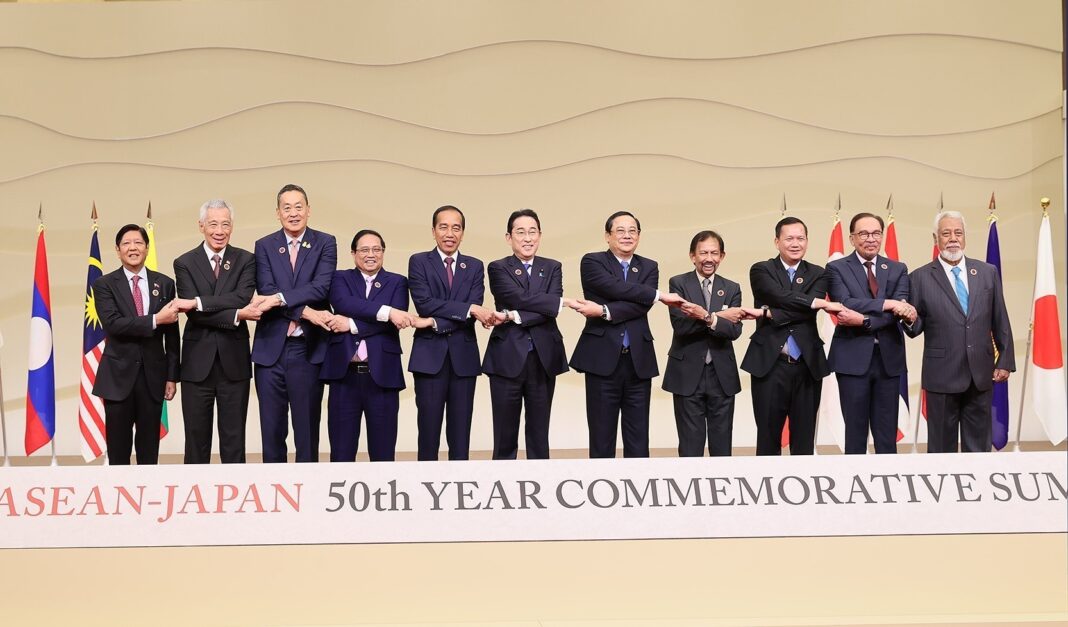 Japanese Prime Minister Kishida Fumio and heads of ASEAN delegations attend the Summit to celebrate the 50th anniversary of ASEAN-Japan relations. Photo: Duong Giang-VNA[/caption]
Japanese Prime Minister Kishida Fumio and heads of ASEAN delegations attend the Summit to celebrate the 50th anniversary of ASEAN-Japan relations. Photo: Duong Giang-VNA[/caption]“From heart to heart”
ASEAN was established on August 8, 1967. Initially, ASEAN had only 5 member countries, including Indonesia, Malaysia, Philippines, Singapore and Thailand. Later, ASEAN successively admitted 5 other countries in the Southeast Asian region, including Brunei (in 1984), Vietnam (in 1995), Laos and Myanmar (in 1997), and Cambodia (in 1999).
ASEAN began establishing a dialogue partnership with Japan in 1973. In 1977, Prime Minister Takeo Fukuda became the first Japanese prime minister to meet with ASEAN leaders at the Second ASEAN Summit in Kuala Lumpur, Malaysia. That same year, during his visit to the Philippines, Prime Minister Fukuda announced the historic Fukuda Doctrine, outlining the basic principles of Japan's foreign policy towards ASEAN. Since then, his "heart-to-heart" diplomacy has become the "fulcrum" of ASEAN-Japan relations.
At the ASEAN-Japan 30th Anniversary Summit in Tokyo in December 2003, the two sides issued the “Tokyo Declaration on ASEAN-Japan Partnership: Dynamic and Enduring”, establishing the framework for the ASEAN-Japan strategic partnership.
At the 14th ASEAN-Japan Summit in Bali, Indonesia, in November 2011, ASEAN and Japan adopted the “Joint Statement on Enhancing the ASEAN-Japan Strategic Partnership for Shared Prosperity and the ASEAN-Japan Strategic Partnership Action Plan for the 2011-2015 period”.
Most recently, at the 26th ASEAN-Japan Summit in Indonesia in September 2023, the two sides adopted a Joint Statement establishing the ASEAN-Japan Comprehensive Strategic Partnership, marking a new milestone in commemorating the 50th anniversary of the establishment of relations.
Over half a century of cooperation, ASEAN and Japan have built a cooperative relationship spanning many fields, from politics , security and defense to economics, trade, investment, culture, society and development cooperation. It can be affirmed that ASEAN and Japan have become indispensable partners of each other, and this relationship has brought and is bringing great benefits to both sides.
Specifically, according to Vietnamese Ambassador to Japan Pham Quang Hieu, in the economic field, Japan has long been one of ASEAN's "most reliable" economic partners. Japan is ASEAN's fourth largest trading partner and second largest investment partner. In addition to economic relations, Japan also plays an important role in financial cooperation with countries in the association. Through the ASEAN+3 framework established in 1999, Japan supported ASEAN during the difficult period of the financial and monetary crisis in Asia.
However, according to Ambassador Pham Quang Hieu, Japan and ASEAN develop relations not only as major trade and investment partners, but also as true friends with a “heart-to-heart” relationship built through many people-to-people exchange activities.
Ambassador Pham Quang Hieu said that currently, the total number of members of the Association of Southeast Asian Alumni in Japan (ASCOJA) is more than 50,000. Since 2007, the Japan-East Asia Youth Exchange Program (JENESYS) has also invited about 47,000 students from Southeast Asia to Japan, both in person and online, for sightseeing and study and vice versa. In addition, the Japan Foundation has implemented about 2,500 projects in the fields of culture and arts, contributing to promoting people-to-people exchanges between Japan and ASEAN countries.
Three pillars of comprehensive strategic partnership
In the context of the complex and unpredictable world situation, at the ASEAN-Japan 50th Anniversary Summit, leaders of the two sides agreed to develop the relationship in a practical and effective manner, commensurate with the stature of the Comprehensive Strategic Partnership, bringing practical benefits to the people.
[caption id="attachment_609729" align="aligncenter" width="1068"]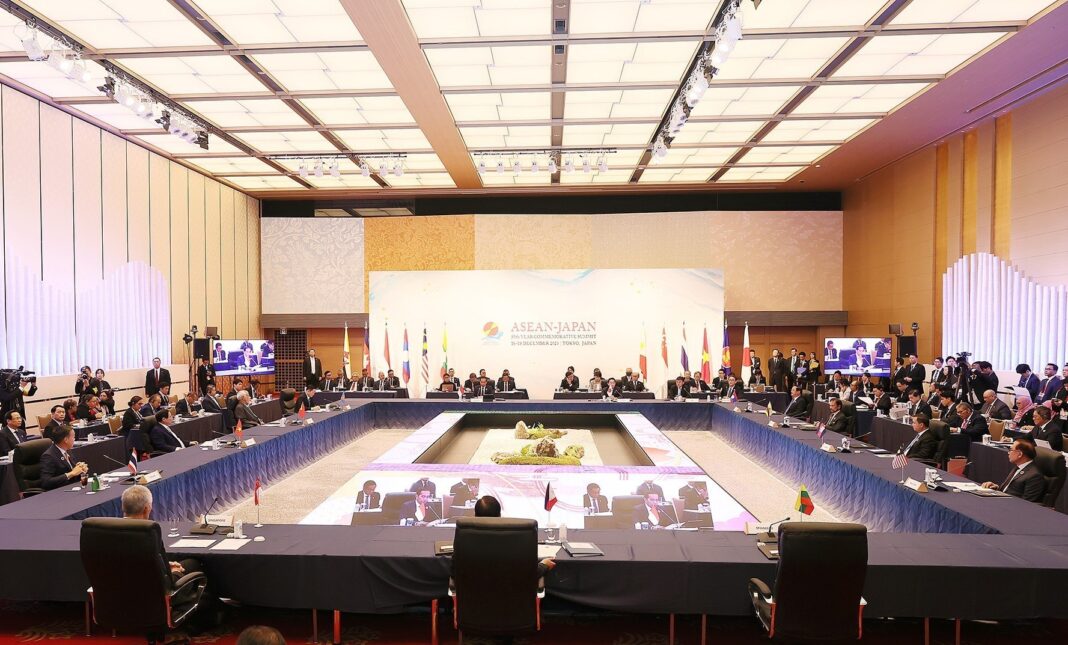 Opening session of the Summit to celebrate 50 years of ASEAN-Japan relations. Photo: Duong Giang-VNA[/caption]
Opening session of the Summit to celebrate 50 years of ASEAN-Japan relations. Photo: Duong Giang-VNA[/caption]The two sides agreed to make efforts to maintain and promote trade and investment exchanges, stabilize production and supply chains in the region, and facilitate exports to each other's markets. On the other hand, ASEAN and Japan will further promote new areas of cooperation with great potential such as green economy, digital economy, and circular economy.
ASEAN and Japan leaders also pledged to strengthen cooperation in many areas, specifically people-to-people exchanges, tourism cooperation, innovation, digital transformation, energy, disaster management, climate change response, maritime security, counter-terrorism and transnational crime, etc.
ASEAN leaders welcomed Japan's consideration of ASEAN as one of its foreign policy priorities in general and Japan's Indo-Pacific Strategy (FOIP) in particular; committed to continuing to support and assist ASEAN in building the Community and promoting its central role in the region.
At the end of the conference, the ASEAN and Japan leaders adopted the “Joint Vision Statement on ASEAN-Japan Friendship and Cooperation: Trustworthy Partnership” and the “Plan for Implementation of the Vision Statement”, which will serve as a basis for implementing the ASEAN-Japan Comprehensive Strategic Partnership in the coming time. In the above statement, the two sides affirmed that “based on mutual trust, ASEAN and Japan will strengthen the Comprehensive Strategic Partnership in a meaningful, substantive and mutually beneficial manner on three pillars”, including: “heart-to-heart” partnerships through generations; partners in co-creating the future economy and society; and partners for peace and stability.
Assessing the results of the Summit to celebrate the 50th anniversary of ASEAN-Japan relations, Deputy Foreign Minister Do Hung Viet said that the conference "was a great success with remarkable results".
According to Deputy Minister Do Hung Viet, firstly, ASEAN and Japan have promoted the role and value of the bilateral relationship; agreed to strengthen coordination in building an open regional structure based on rules to contribute to maintaining and promoting peace, stability and common prosperity in the region.
Second, ASEAN and Japan reached a high consensus on measures for future economic and social “co-creation” cooperation, promoting trade and investment while strengthening supply chains, facilitating exports to each other’s markets, further promoting emerging areas of cooperation with great potential such as green economy, digital economy, circular economy, etc. Japan also pledged to support businesses in the region to participate more deeply in the supply chain of Japanese enterprises in particular and the global supply chain in general.
The two sides also agreed to give higher priority to socio-cultural cooperation and people-to-people exchange; enhance educational exchanges, cooperation in human resource development, tourism, environment, disaster management, climate change, energy transition, management and sustainable use of natural resources, etc. ASEAN highly appreciated Japan's announcement of 40 billion yen (276 million USD) in support for people-to-people exchange programs in the next 10 years, 15 billion yen (103 million USD) for the joint international research and research exchange program and committed to mobilizing 35 billion USD in the next 5 years from public-private funds to promote connectivity cooperation, support small and medium enterprises, digital transformation, energy transition, climate change response, etc.
Third, the leaders of the two sides agreed to further deepen political-security cooperation, promote ASEAN's central role, and strengthen coordination on international issues to jointly respond to regional and global challenges. In particular, the two sides reaffirmed the importance of respecting international law, emphasizing the settlement of disputes by peaceful means, ensuring peace, stability, security, safety, and freedom of navigation and aviation in the East Sea. Japan affirmed its support for ASEAN's efforts to fully and effectively implement the Declaration on the Conduct of Parties in the East Sea (DOC) and soon complete an effective and efficient Code of Conduct in the East Sea (COC) in accordance with international law, especially the 1982 United Nations Convention on the Law of the Sea (UNCLOS)./.
Trong Kien


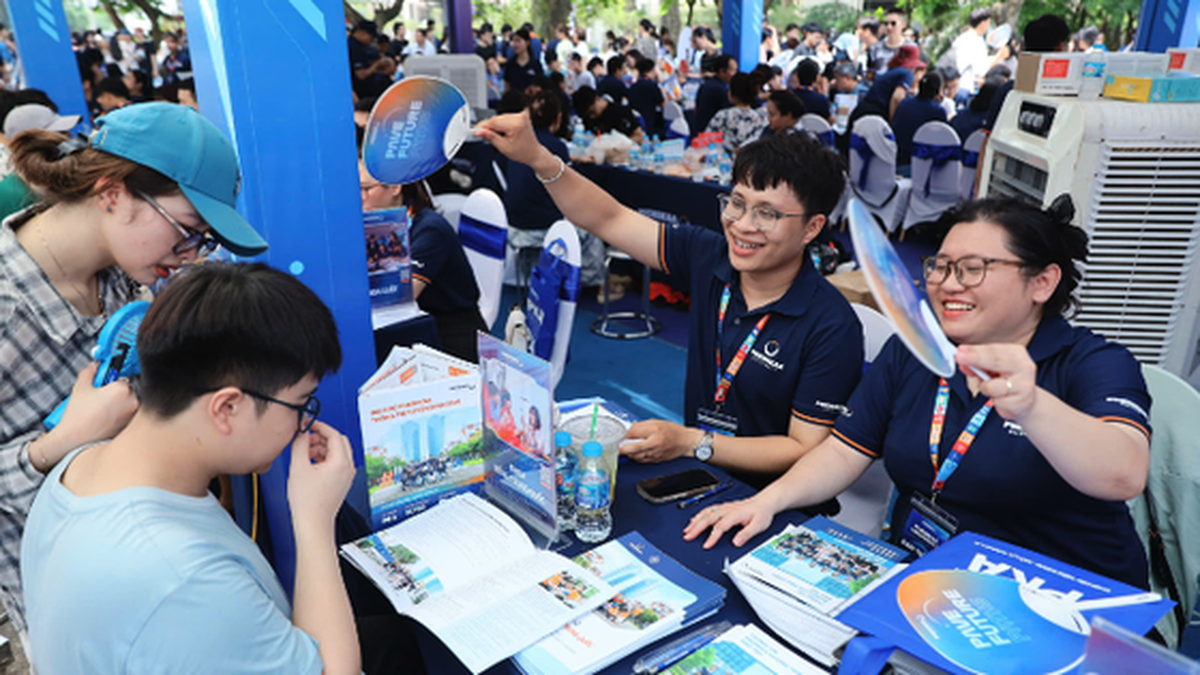

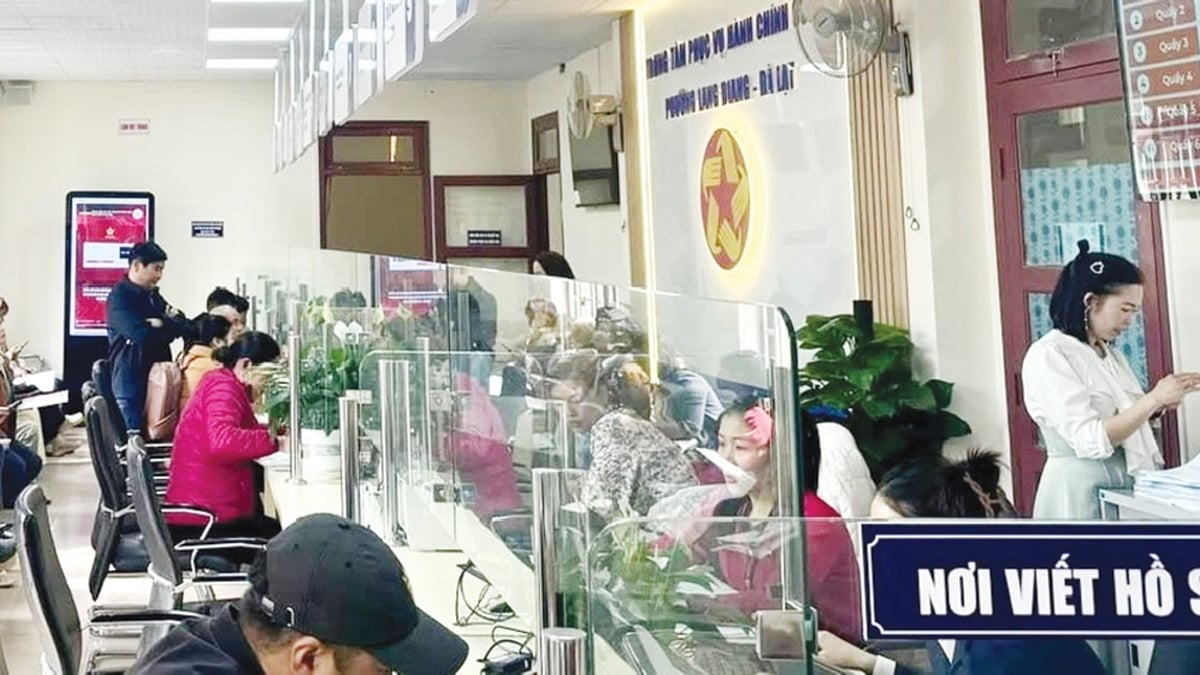
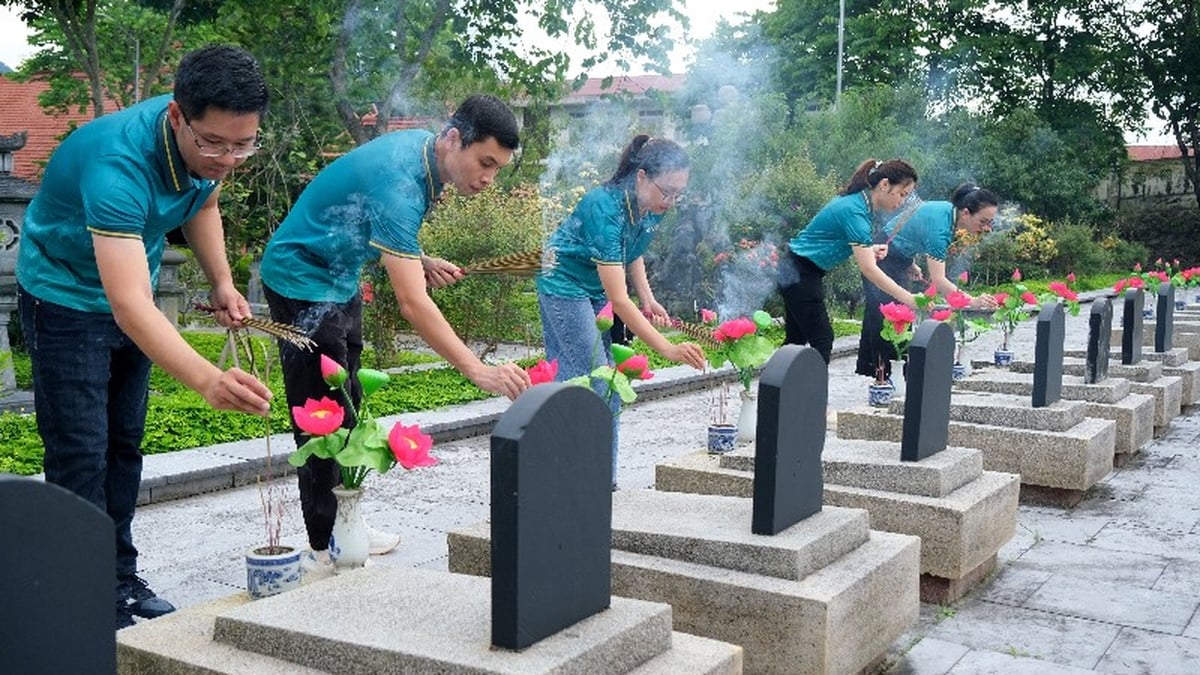
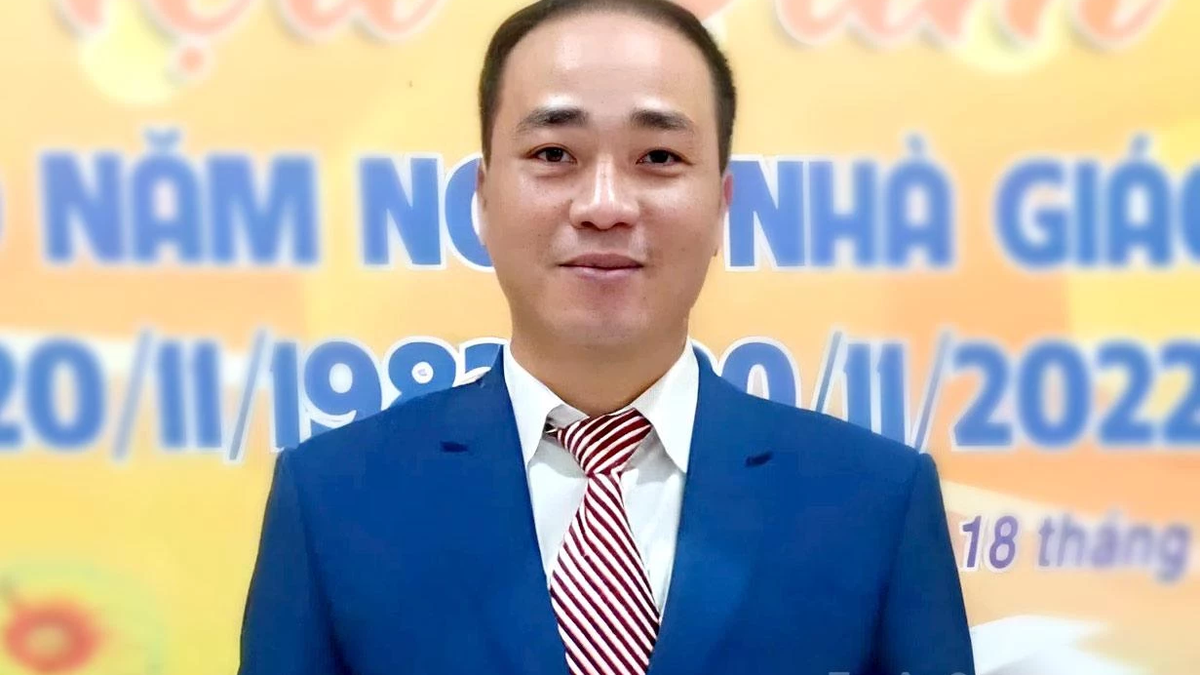
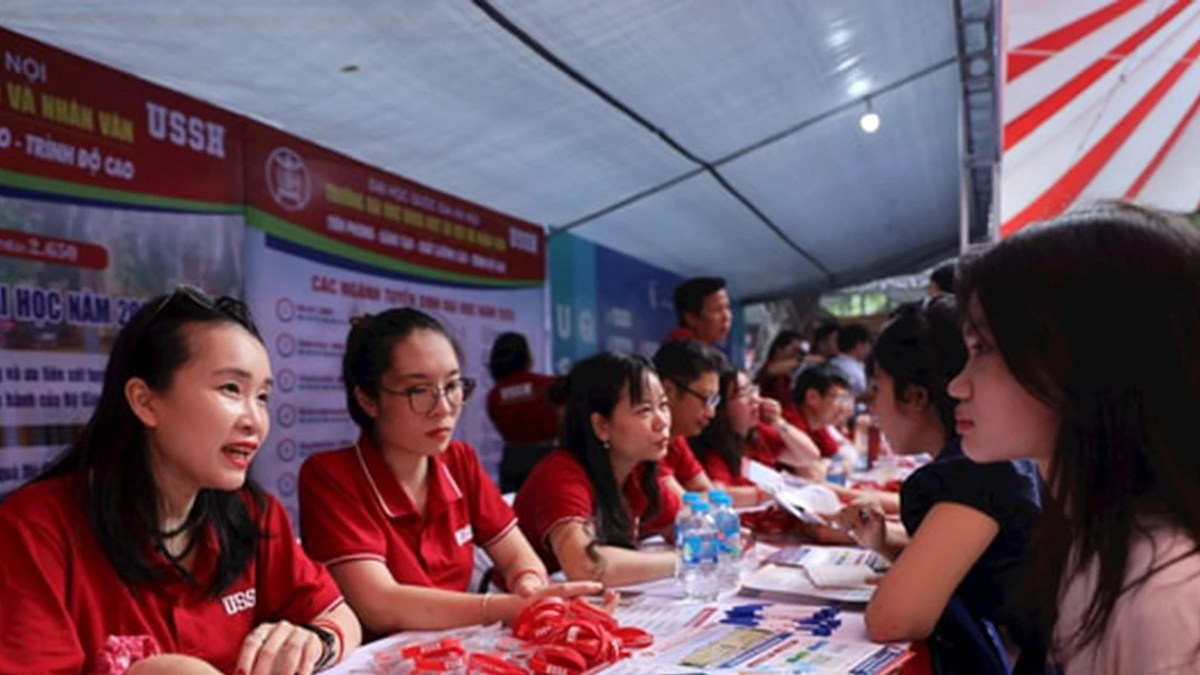
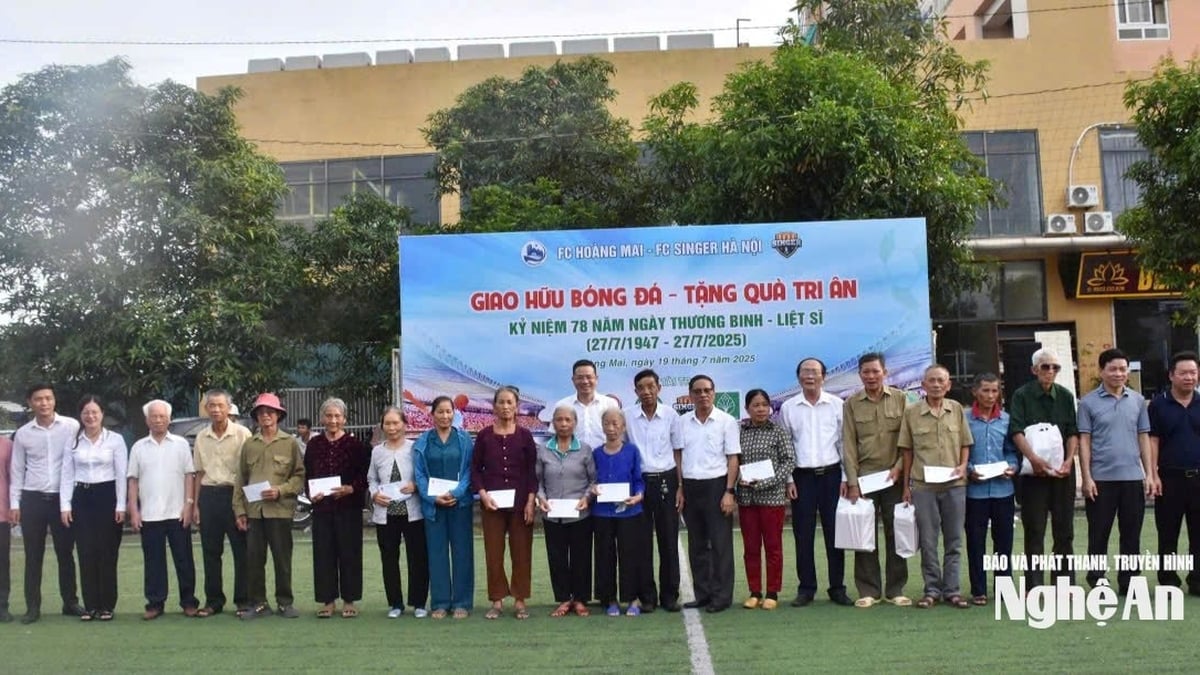


























































































Comment (0)